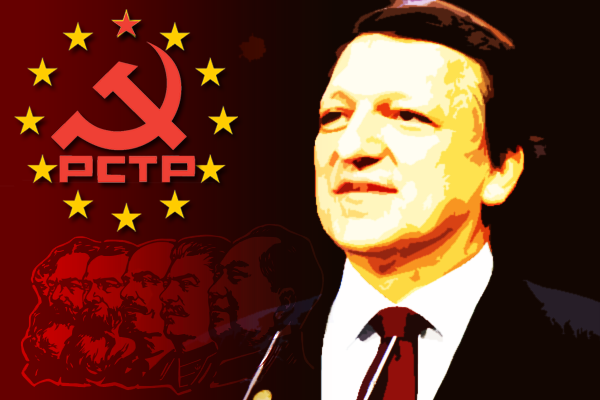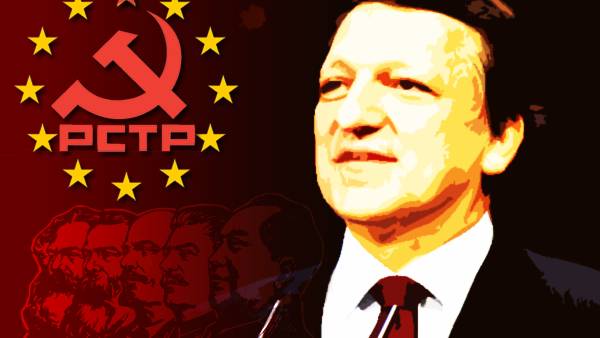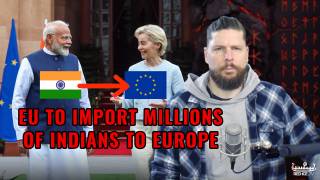The EU is an antidote to democratic governments, argues President Barroso
Source: blogs.telegraph.co.uk

The President of the European Commission, José Manuel Durrão Barroso, has offered one of the few utterly honest arguments for European integration. The reason we need the EU, he suggests, is precisely because it’s not democratic. Left to themselves, elected governments might do all sorts of things simply to humour their voters:
Governments are not always right. If governments were always right we would not have the situation that we have today. Decisions taken by the most democratic institutions in the world are very often wrong.This was, in large measure, the original rationale for European unification. The founding fathers had come through the Second World War with – perhaps understandably – a jaded view of democracy. They fretted that, left to themselves, electorates might fall for demagogues. So they deliberately designed a system in which supreme power was wielded by appointed Commissioners who didn’t need to worry about public opinion. It would be going too far to describe the Euro-patriarchs as anti-democratic: Robert Schuman had a sincere commitment to the ballot box, even if Jean Monnet hadn’t. But it is fair to say that they believed that the democratic process sometimes needed to be guided, tempered, constrained.
There are still plenty of people who think this way. Whenever I make the case for referendums, someone in the audience objects that the issues are too difficult for the man in the street, that the experts should be allowed to get on, that we are quietly relieved when politicians do what they think is best for us. As Tony Blair once put it:
The British people are sensible enough to know that, even if they have a certain prejudice about Europe, they don’t expect their government necessarily to share it or act upon it.In other words, we tell ministers that we want powers back from the EU, but we’re secretly hoping they ignore us. The gentlemen in Whitehall and Brussels know best.
So why not do away with elections altogether? Yes, the European question can be made to sound complicated; but how much more complicated is a general election, in which, as well as weighing up the various parties’ attitudes to the EU, voters must also factor in their policies on housing, education and so on? As Vernon Bogdanor puts it: “Arguments against referendums are, in the final analysis, arguments against democracy”.
And if not democracy, what? Anarchy? Dictatorship of the proletariat? Absolute monarchy? Most Barrosistas want a kind of moderated democracy, where voters are ultimately in charge, but where experts also have their place. Yet this has been the argument of every tyrant in history: Bonaparte, Mussolini, Salazar, Lenin. It is, mutatis mutandis, the justification of the ayatollahs in Teheran, who allow elections, but empower an unelected commission to step in when people get the result wrong. It is the argument you hear in private from Chinese Communists: yes, people should be free to elect candidates for certain offices, but a country like this would fall apart without the expertise concentrated in our party.
There is, of course, a huge difference between arguing that, say, the Bank of England should determine interest rates, and arguing that the Communist Party should run China. But it is, when you think about it, a difference of degree. Both propositions come down to mistrust of the electorate.
Voters, being human, can make mistakes. But it doesn’t follow that a class of experts would have made a better decision. Just think about some of the positions that “the experts” have taken down the ages. In the 1920s, they were for returning to gold at the pre-war rate. In the 1930s, they were for appeasement. In the 1940s, they were for nationalisation. In the 1950s they were for state planning. In the 1960s, they were for mixed-ability, child-centred teaching. In the 1970s, they were for price controls. In the 1980s, they were for the ERM. In the 1990s they were for the euro. In our own decade, they were for the bail-outs and stimulus packages.
A random cross-section of the population will almost always have more collective wisdom than a group of self-selected and necessarily self-interested experts. It cannot be repeated too often: the oxen are wiser than the grasshoppers.
Source: telegraph.co.uk
The Hidden Roots of the European Union by Henrik Palmgren
Red Ice Radio
Marta Andreasen MEP - Brussels laid Bare, Financial Fraud within the European Union
Nigel Farage MEP - The State of the EU & The Undemocratic Treaty of Lisbon
David Icke - The Lisbon Treaty & The Corrupt European Union
David Icke on the Origins & Symbolism of the EU






















